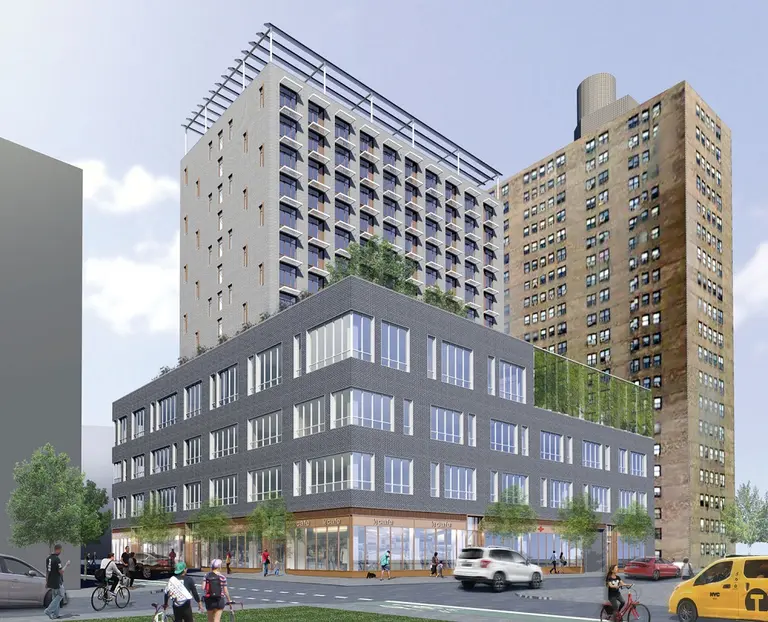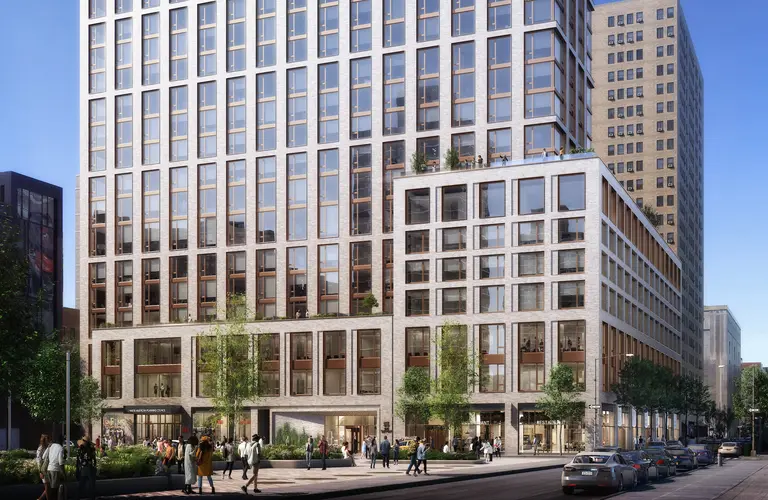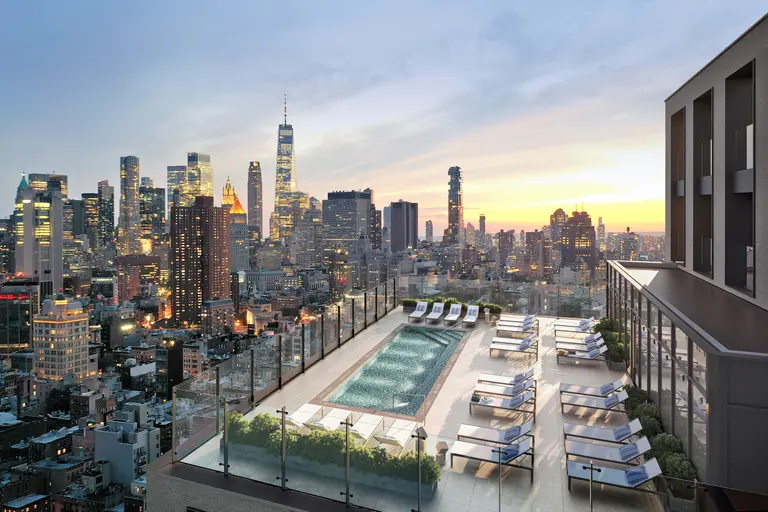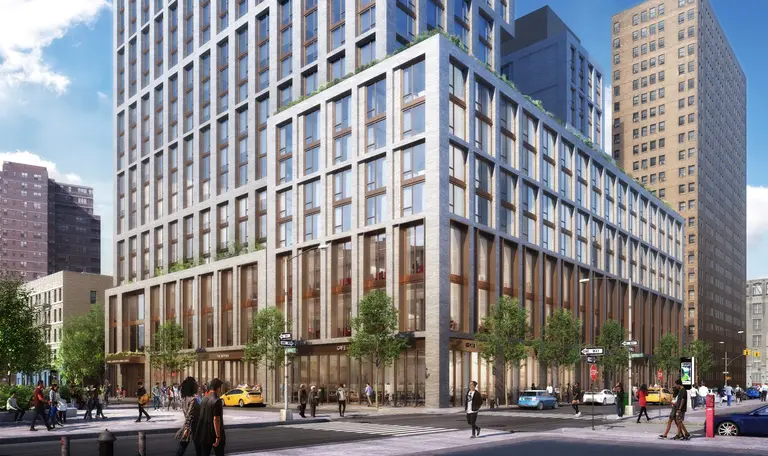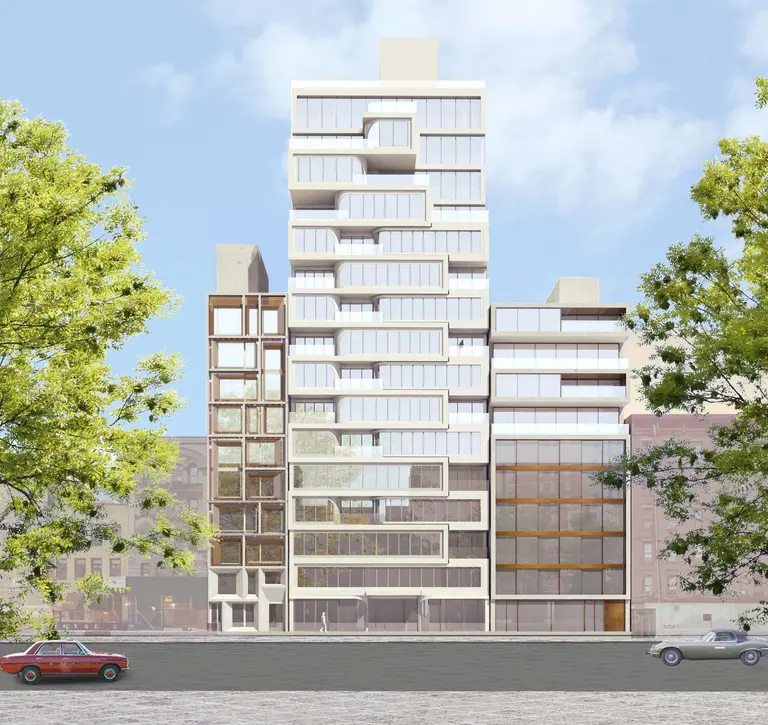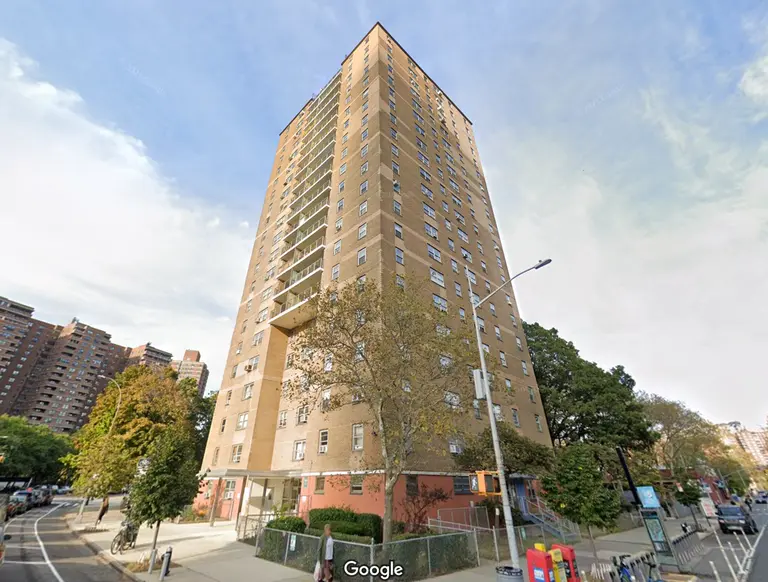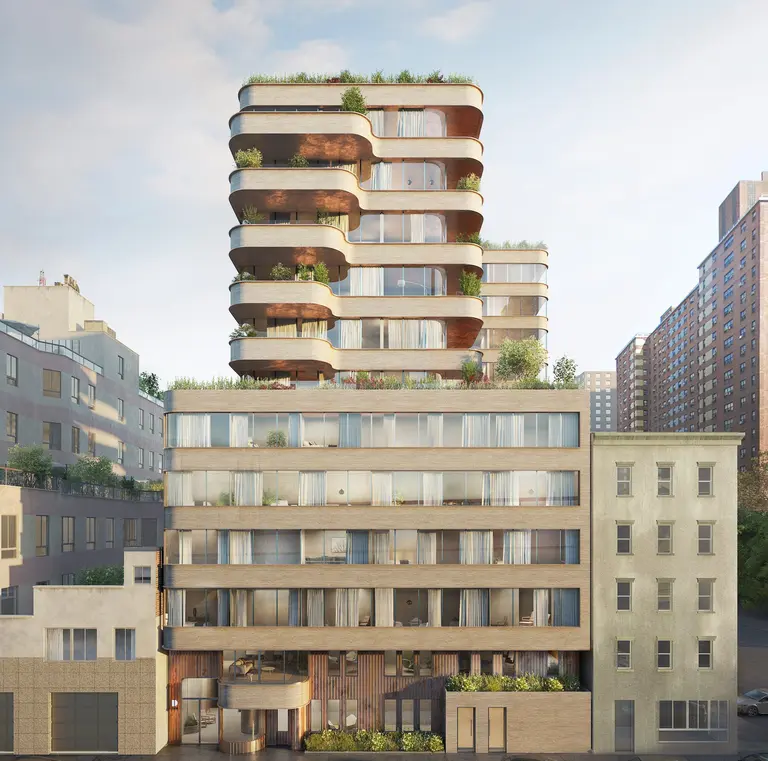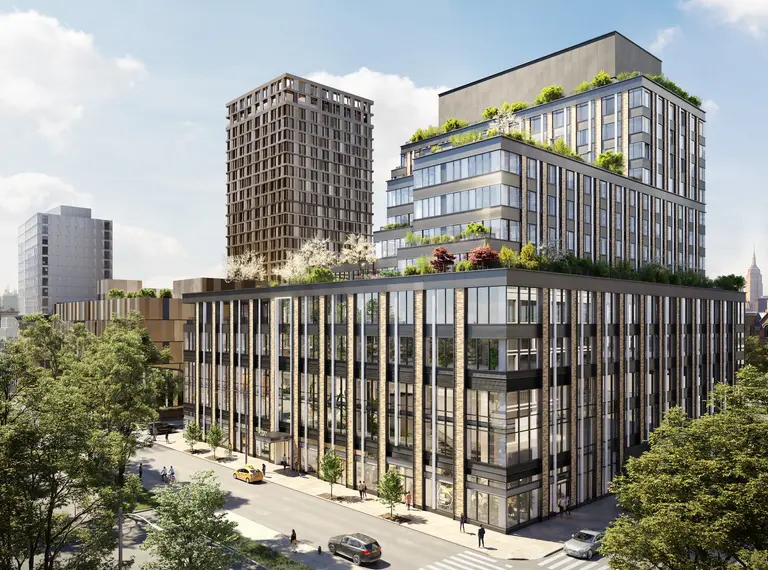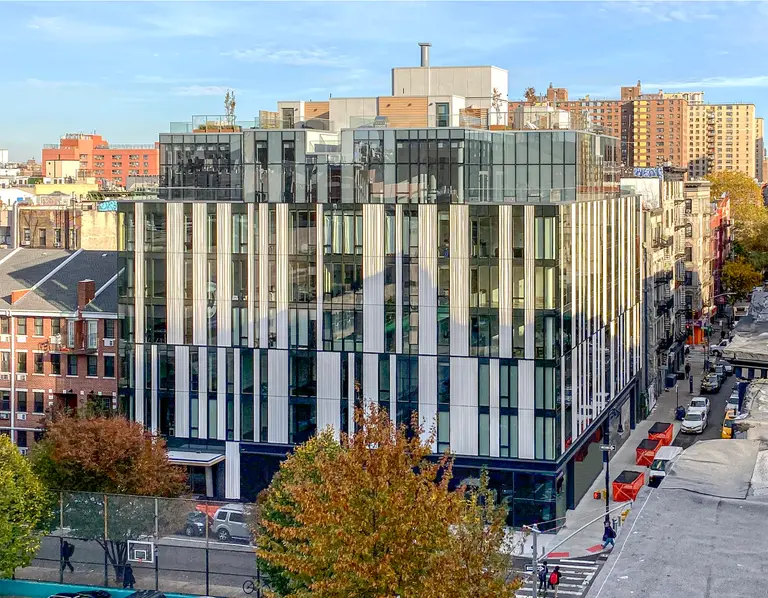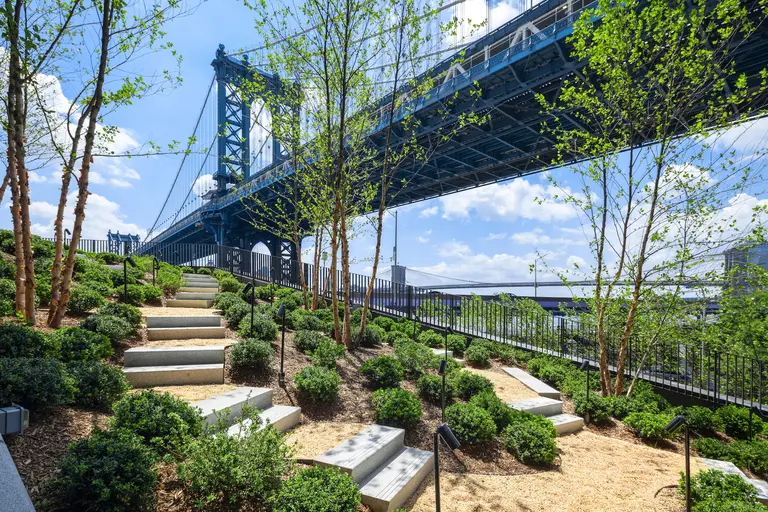Affordable senior housing development is the first building to open at Essex Crossing
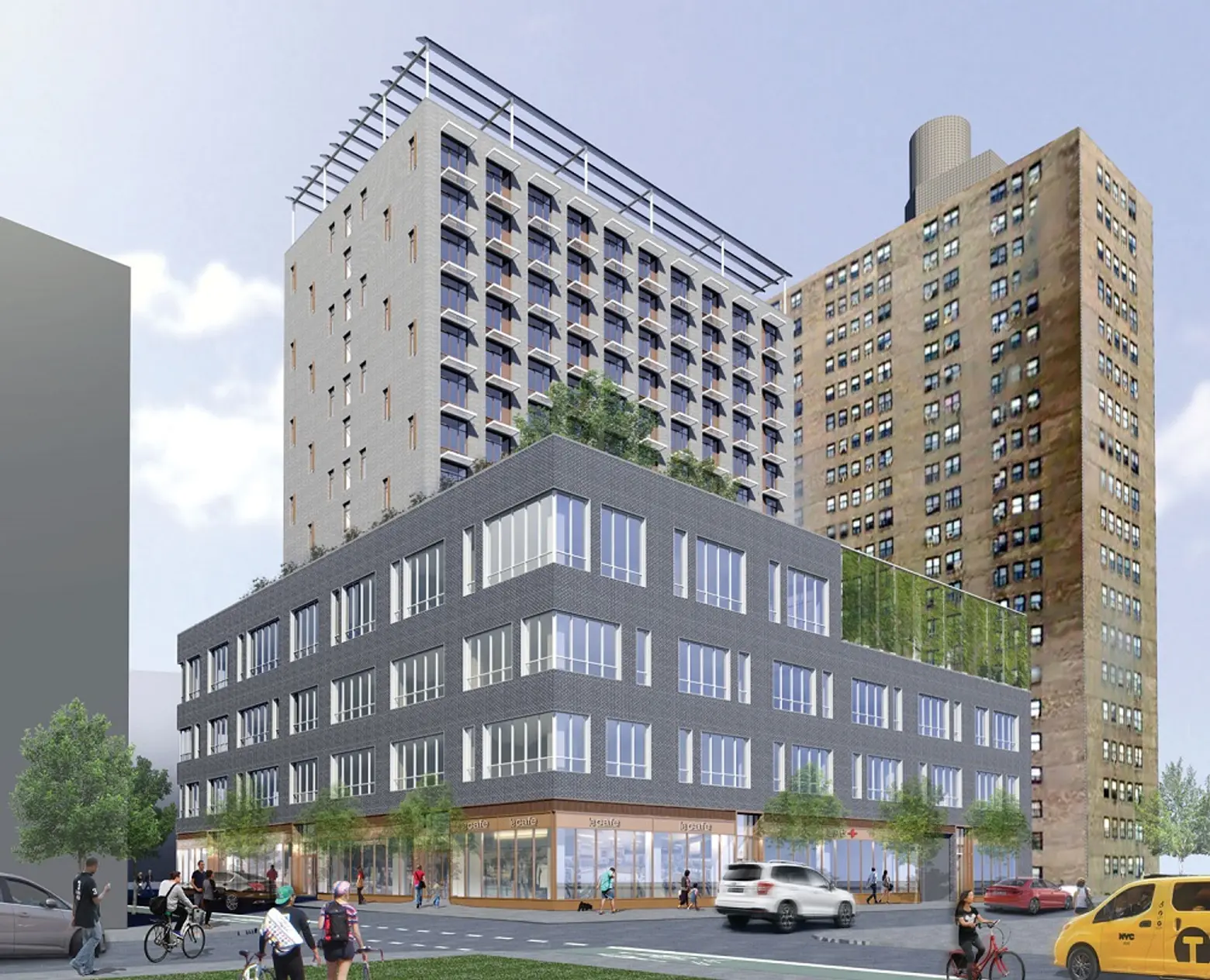
Nine months after the housing lottery launched at Dattner Architects‘ 175 Delancey Street, a 100 percent affordable building for seniors at the Lower East Side’s Essex Crossing, Mayor de Blasio has announced that the development is officially open. Not only does this mark the first opening for the nine buildings rising at the 1.9 million-square-foot mega-development, but the ceremony held earlier today included the “emotional homecoming of six New Yorkers displaced from their homes 50 years ago” when the area’s working-class tenement district was razed under a Moses-era urban renewal initiative. Since that time, debates over what to do with the vacant area raged on, with local residents and affordable housing advocates such as Frances Goldin advocating that it be used for low-income housing. To mark these efforts, and their ultimate success, 175 Delancey Street was named the Frances Goldin Senior Apartments.
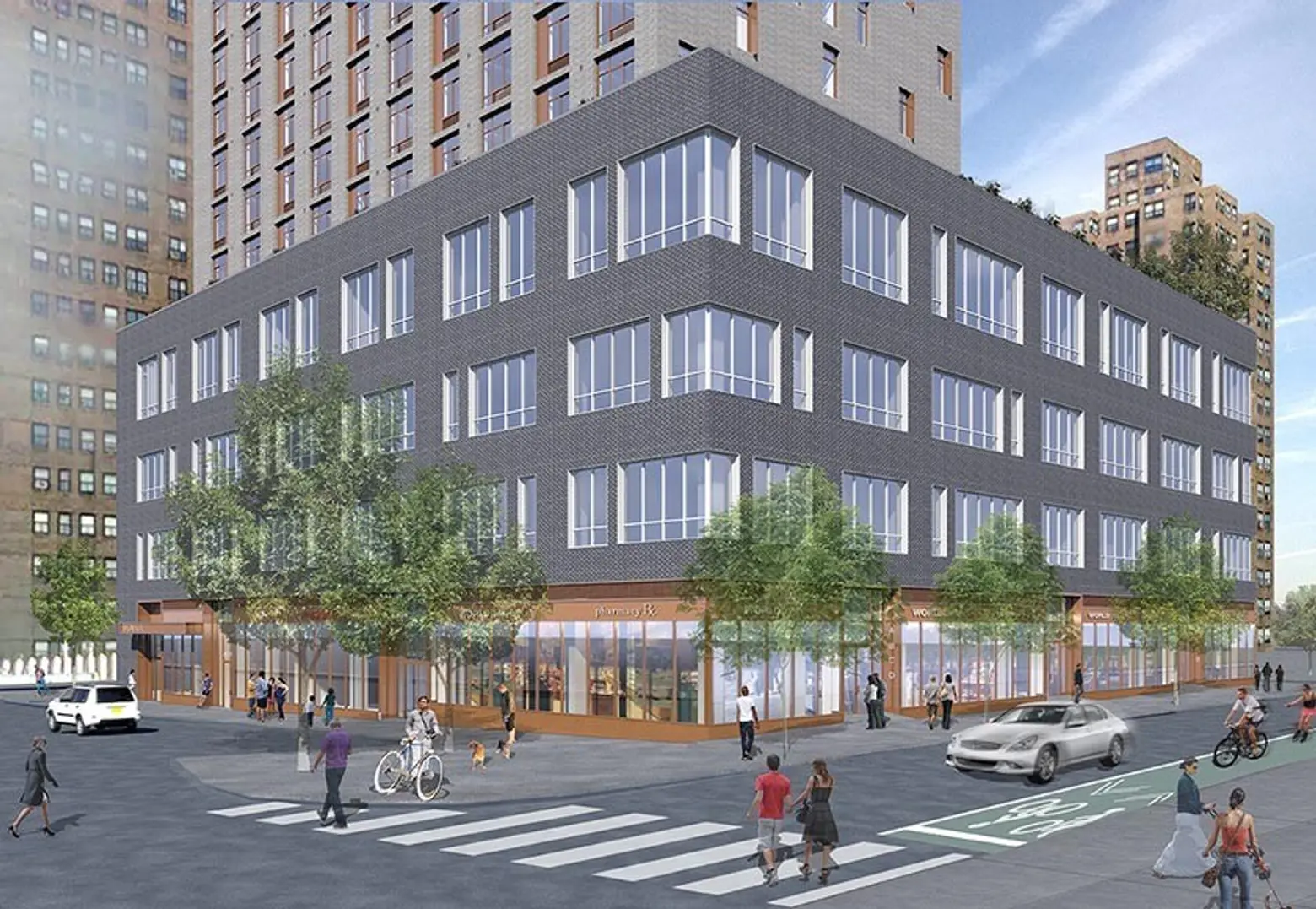
When the city tore down 20 acres of buildings south of Delancey Street in 1967, it’s estimated that more than 1,800 low-income families, largely of Puerto Rican descent, lost their homes. But it wasn’t until six years ago that the Bloomberg administration began the redevelopment process for what had become the largest city-owned site below 96th Street.
As the Times explains, when the Essex Crossing plans were approved in 2013, “the city’s Department of Housing compiled records of tenants who lived in the tenements demolished in the late 1960s and early 1970s, supplemented by names from former residents.” They came up with about 500 names, though some people’s income would be too high or low to qualify for the affordable units, of which there will be a total of 561 throughout the development. Eight additional families who lost their homes in 1967 will move into a second affordable housing building, and more may arise as the process continues.
One of the six returning residents to 175 Delancey is David Santiago, who was just six-years-old when his family lost their home and was promised they’d be able to come back. He told the Times that they then moved to Avenue D, which he referred to as “a war zone.” After serving in the marines and spending 36 years in California as a chef, Santiago moved back to New York to care for his mother. Of his homecoming, he said:
When I walk down the street I don’t see the new buildings out there. I see the marble pillars of the old Seventh Precinct, the shop on Delancey that was known for the best cuchifritos, Ratner’s restaurant, the Apollo Theater, and The Spot, a bar where the Jewish gangsters hung out and I shined shoes.
Another displaced child, Jose Ossorio, described his own journey back to the Lower East Side:
It felt good, coming back into the neighborhood. What it used to be and what it is becoming. It was a good thing to see the changes, the prosperity and the diversity of the neighborhood.
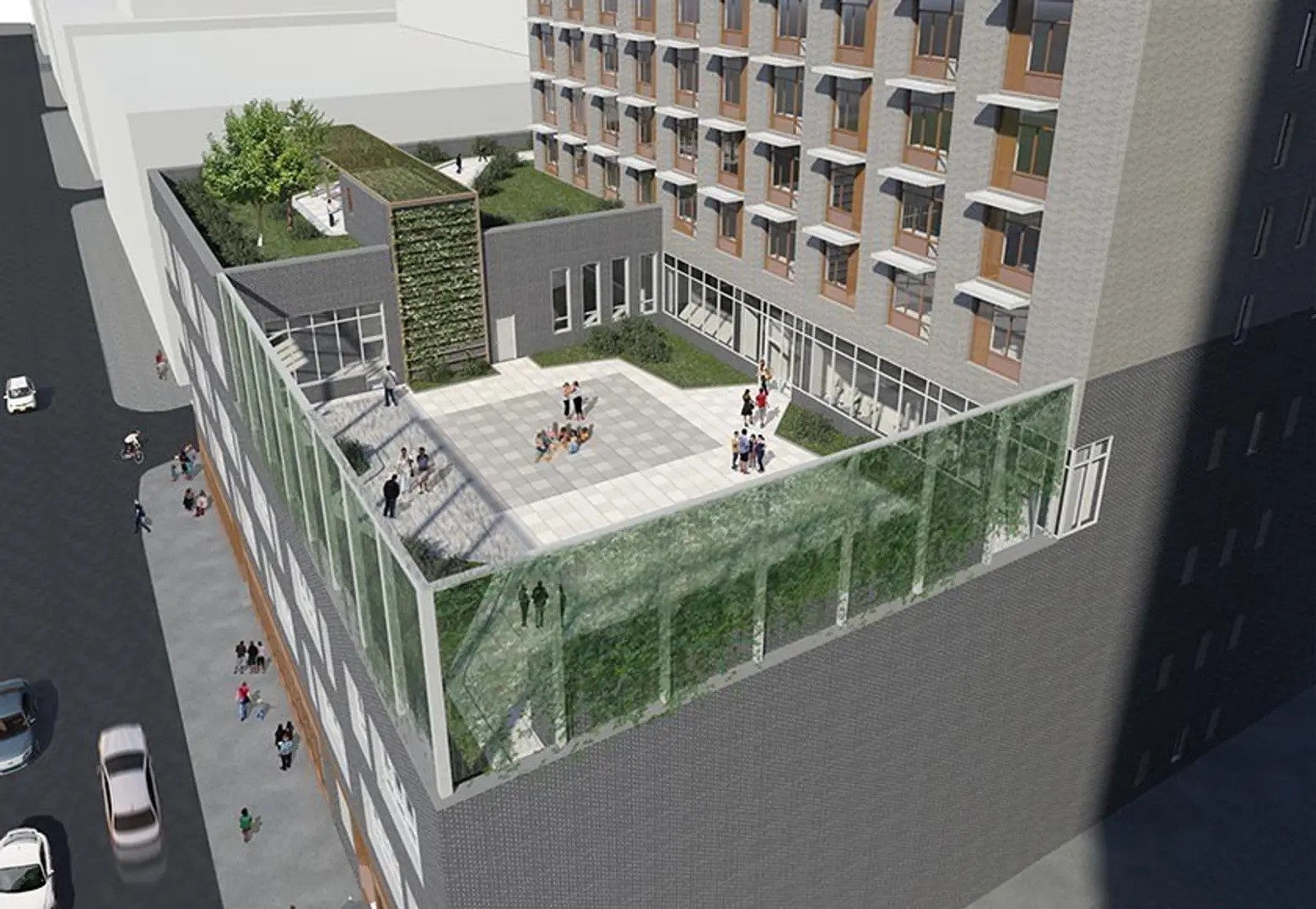
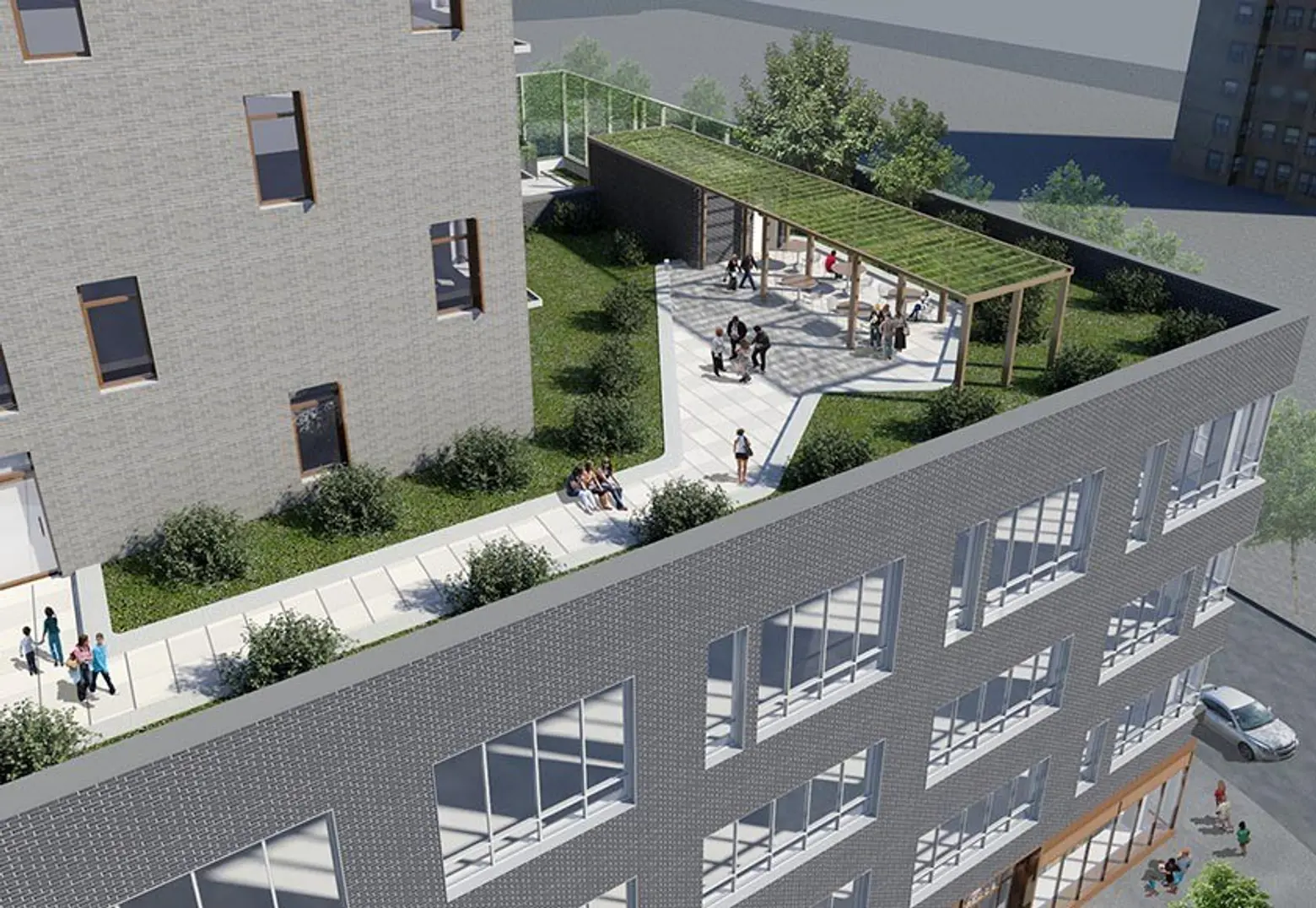
The Frances Goldin Senior Apartments has a total of 99 one-bedroom apartments set aside for one- and two-person households that have at least one resident who is 55 years of age or older. They’re earmarked for those earning 0, 30, 40, 60, and 90 percent of the area median income and range from $396/month to $1,254/month. The 14-story building also offers ground-floor retail, medical offices for NYU Langone, and a senior center and job training facility from the Grand Street Settlement. Amenities include an on-site superintendent, bicycle room, laundry room, and outdoor community space.
In a statement, Mayor de Blasio said, “I am delighted that long-displaced tenants who want to come home are finally coming home and that we are making good on a decades-old promise to revitalize this important corner of the Lower East Side – which epitomizes New York City’s immigrant roots. Welcome home, it’s about time!”
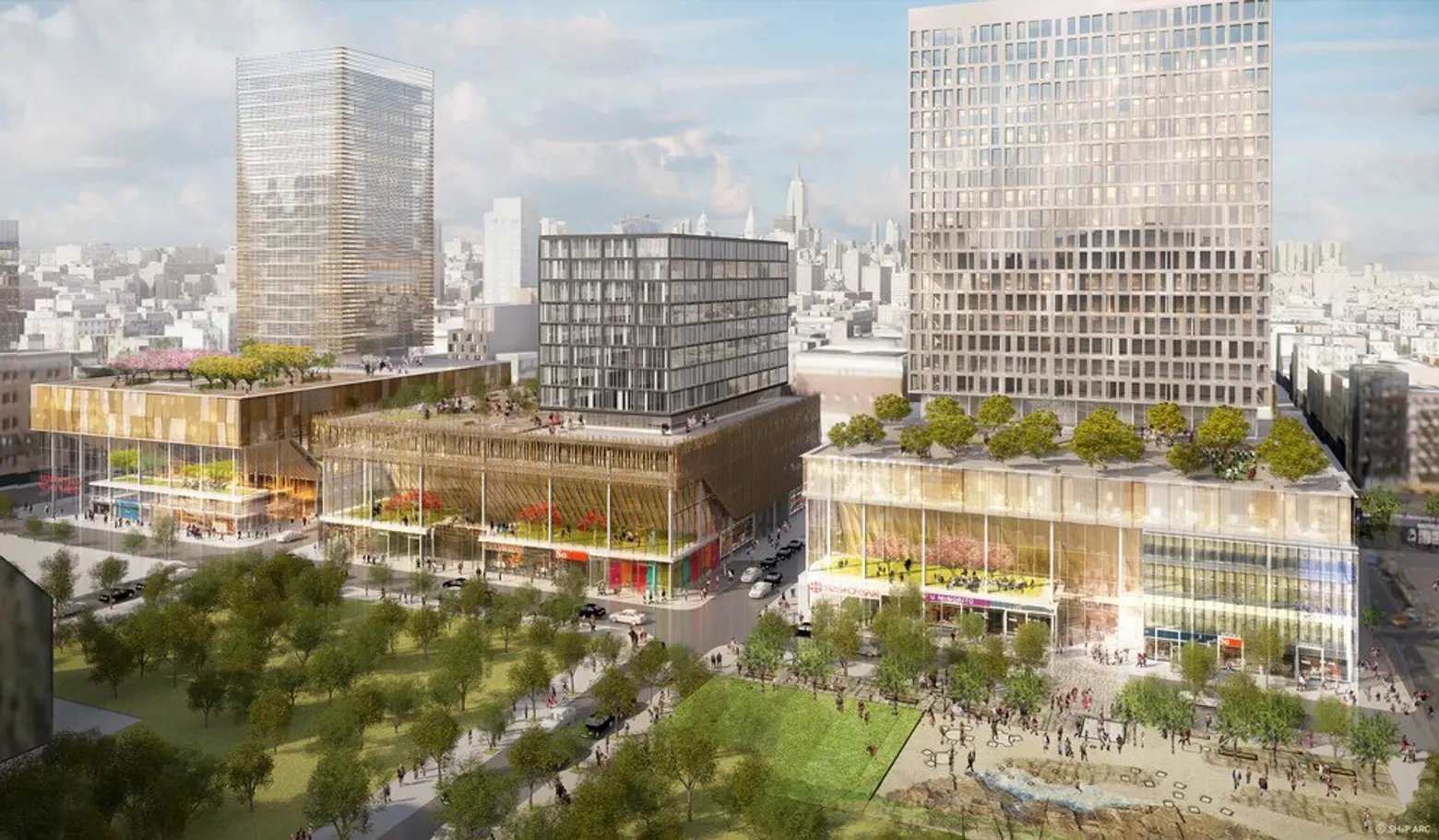
When fully completed in 2024, the $1.5 billion Essex Crossing project will offer a total of 1,079 new homes, a public park, movie theater, Trader Joe’s, Target, a new home for the International Center of Photography, and the Market Line, a massive food hall in the historic Essex Street Market.
RELATED:
- Affordable housing lottery for seniors opens at Essex Crossing, from $396/month
- More affordable senior housing units planned for Essex Crossing development
- Essex Crossing rental gets new renderings and a new name to honor jazz legend Sonny Rollins
- All Essex Crossing coverage
All renderings courtesy of Dattner Architects
